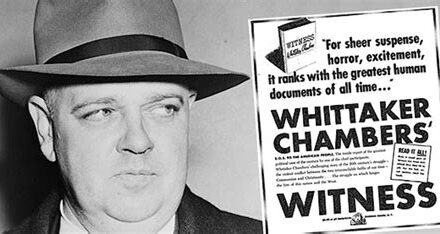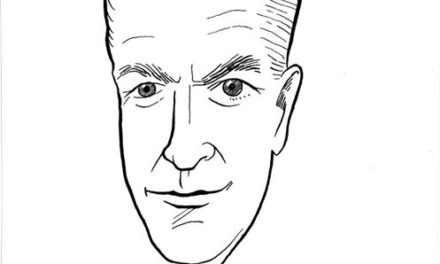Albert Jay Nock’s largely forgotten book The Theory of Education in the United States is well worth the short time it takes to read it. Written in 1931, implicitly as a reaction to the educational theories of John Dewey, Nock painted a picture of educational decline: falling standards, ignorance of the humanities, and a general atmosphere of aimlessness—the fruits of Dewey’s call for educators to encourage students’ “creative” tendencies.
Amusingly, Nock recalled hearing an anthem to the tune of “Auld Lang Syne” that had a rather simple set of lyrics: “We’re here because we’re here because we’re here because we’re here.” Like something out of Brave New World, it’s as catchy as it is mindless, but it summed up the state of most students in academia America.
Fundamentally, Nock argued that education had gone astray by rejecting an idea that ought to have formed its foundation, namely, that education was chiefly formative of (if I may borrow from Russell Kirk who borrowed from T. S. Eliot)” the moral imagination.” That was real education; everything else was training—and there was altogether too much of the latter in 1932.
The argument is, by and large, accurate. The more useful studies become, the less use they have in helping men live morally and freely—in other words, the less they foster “liberal” understanding. Training can get one a six- or seven-figure annual income—all that matters for many—but it cannot develop a man beyond his skills and appetites.
None of which is to say that higher education did not have from the start any practical goals. Charles Homer Haskins in The Rise of the Universities (1923), a delightful and informative book, and in a series of lectures delivered nine years before Nock, observes that although learning was always at the fore in the medieval university, there were strong voices calling for the application of studies in various professions, especially in civil service where literacy was prized. As today, certain callings required very specific skills; hence, the traditional medieval faculties of theology, medicine, law, and the arts (the classics to us). Studies were intellectual, indeed, but often, perhaps invariably, necessary in professional walks of life.
However, all told, the useless studies became the foundation for the useful, and to the degree that they fostered the moral imagination, they were perhaps more useful than anything else in a man’s growth, saving, of course, his faith.
Centuries of students benefitted from the overall scheme the Middle Ages bequeathed them, even with the major changes that came over time: the rise of scientific fields of study proliferating from the 17th through 19th centuries, and, as the classics waned, the transformation of the “arts” into the humanities (English, philosophy, math, history, and modern languages). The tendency to departmentalize was and is disturbing to those of us who revere the benefits of liberal education as preparatory to the pursuit of any “field,” but with the standard humanities requirements and the growth in better schools of Western-oriented core curricula, it remained and, in a few places still is, possible to get a good and sometimes outstanding education.
The opportunities for such an education, however, are shrinking—alarmingly. The counter-culture sixties fired what became the first of many salvos at the study of Western culture. And the students who, following the lead of the Marxist and Trotskyite soixante-huitards of Paris (laughably called “anti-authoritarian” in a New York Times fiftieth anniversary article in 2008), manned the barricades at Berkeley and Columbia, demanding “change,” chiefly the kind that would grant them the power to scrap the outmoded classes in Western literature, history, philosophy, and, in once Christian schools, theology in favor of courses in minority persecution and basket-weaving.
That they were at least as successful as their Paris brethren is a matter of record. Worse than that, they eventually dominated the universities they had ruined, becoming Ph.D.s ready and willing to confirm future generations of students in their own wayward dedication to the tenets of the Frankfurt School, deconstructionism, post-colonialism, and a host of other leftist “studies,” usually buttressed by a Marxist critique of the capitalist West.
By the 80s, Jessie Jackson conducted students at Stanford in the chant “Hey, hey, ho, ho, Western Civ has got to go.” It—meaning the entire battery of traditional disciplines associated with our “civ”—didn’t “go” immediately, but the tradition, like Arnold’s “sea of faith,” was sounding its “melancholy, long, withdrawing roar.”
Today a student, such as my son-in-law, who contemplates an advanced degree in philosophy, will likely be advised to consider a more practical avenue, business or law. Philosophy departments are disappearing, with graduates holding degrees from even the most prestigious schools despairing of employment. English and history may not be far behind, and the fate of classics departments is easy to gauge by their paucity.
What does a student in 2017 “freed” from the shackles of the West’s outmoded understanding of God, man, and society look like? At Penn, it was the students that replaced the portrait of Shakespeare that hung in Fisher-Bennett Hall with the picture of a black feminist poet. George Washington University dropped the American History requirement for its history B.A. without, as far as I know, any significant protest from majors. “Trigger warnings” proliferate on campuses, along with safe spaces (offering “adult” coloring books and Play-dough) and petitions to cancel exams whenever current affairs move contrary to the inevitable currents of Marxist history. Professors of the old school that championed hard work and superior performance (Harvard’s Harvey Mansfield, for one) comment with gentlemanly but sad amusement about the “A” student of 2017 who would have been a “C” student sixty years ago.
In a recent article by Giulio Meotti on Gatestone Institute’s site, I read the following quotation, very much to the point, from Quebec philosopher Mathieu Bock-Côté: “Man without history, without culture, without country, without family and without civilization is not free: he is naked and condemned to despair.” Is that our next generation, one without a past and without faith?
The Ottoman Empire was once known as “the sick man of Europe.” The university, an institution nearly nine hundred years old, is now one sick man (yes, one of many) of the West. It came into existence when the Cathedral school became inadequate to the demands of a growing, vibrant society. The time may come—and it may be very soon indeed—when the modern West, hardly in robust health itself, will find its future better served by a renewed Cathedral school and by the disappearance of a once-great institution, the university, that is degenerating before our eyes into a massive day-care center.














